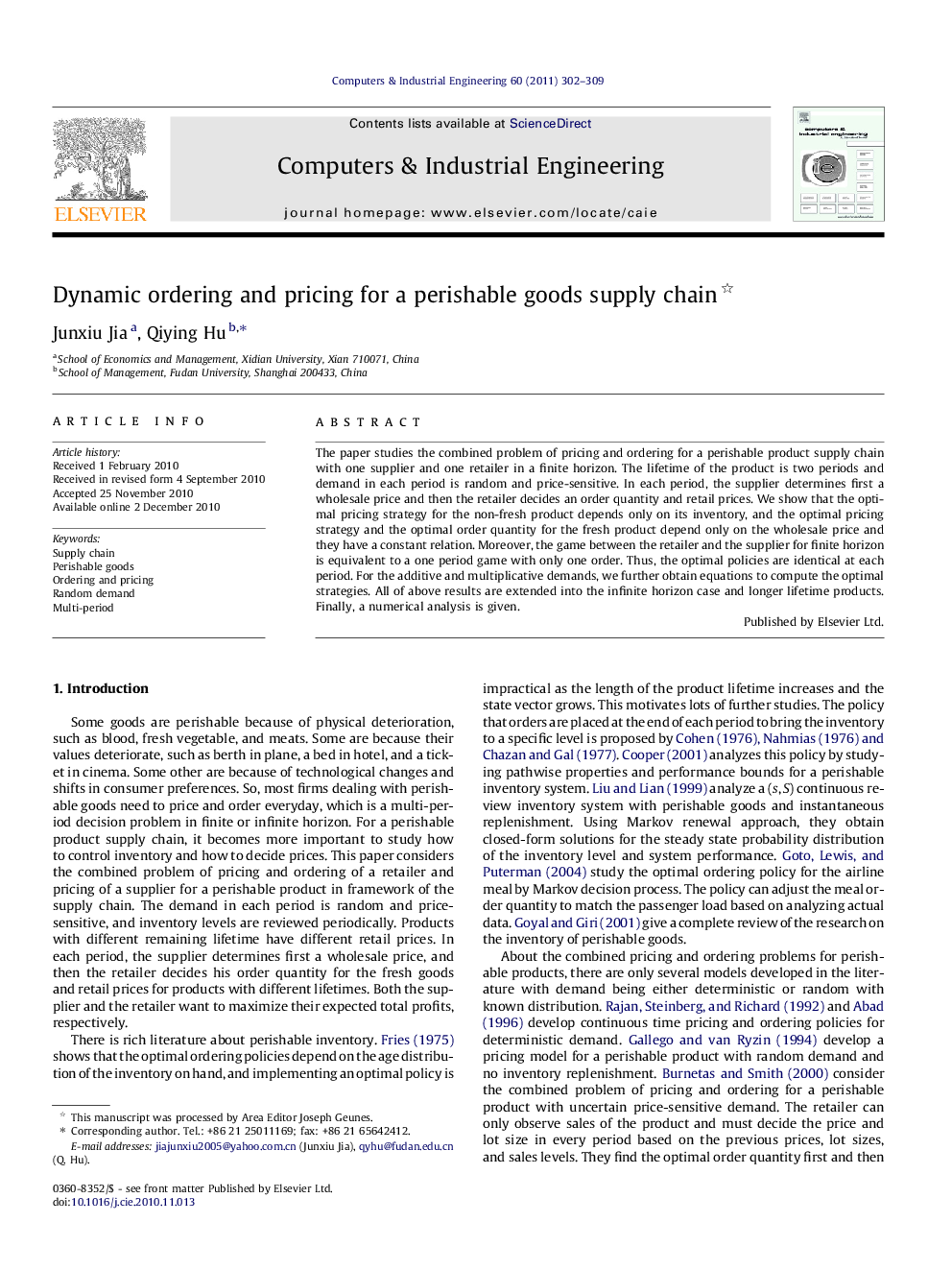| Article ID | Journal | Published Year | Pages | File Type |
|---|---|---|---|---|
| 1134638 | Computers & Industrial Engineering | 2011 | 8 Pages |
The paper studies the combined problem of pricing and ordering for a perishable product supply chain with one supplier and one retailer in a finite horizon. The lifetime of the product is two periods and demand in each period is random and price-sensitive. In each period, the supplier determines first a wholesale price and then the retailer decides an order quantity and retail prices. We show that the optimal pricing strategy for the non-fresh product depends only on its inventory, and the optimal pricing strategy and the optimal order quantity for the fresh product depend only on the wholesale price and they have a constant relation. Moreover, the game between the retailer and the supplier for finite horizon is equivalent to a one period game with only one order. Thus, the optimal policies are identical at each period. For the additive and multiplicative demands, we further obtain equations to compute the optimal strategies. All of above results are extended into the infinite horizon case and longer lifetime products. Finally, a numerical analysis is given.
Research highlights► This paper is the first one to study supply chain management in multi-period for a perishable goods. ► The optimal pricing strategy for the non-fresh product depends only on its inventory, and the optimal pricing strategy and order quantity for the fresh product have a constant relation depending only on the wholesale price. ► The game between the retailer and the supplier for finite horizon is equivalent to a one period game. ► The optimal policies are identical for each period.
